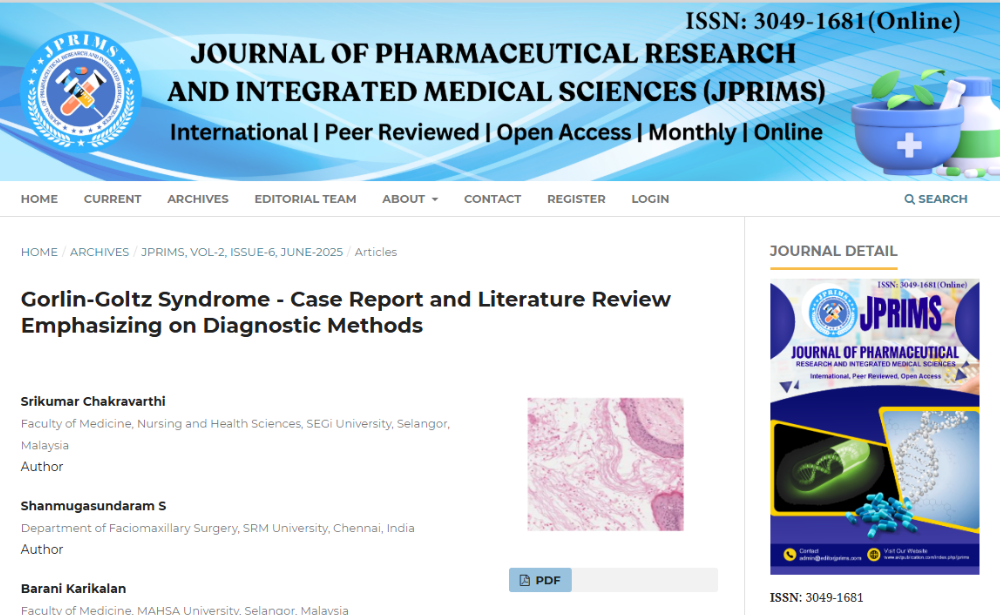Groundbreaking research from SEGi University has brought new insights to light on Gorlin-Goltz Syndrome (GGS), a rare hereditary cancer disorder, through a compelling new case report and literature review. The study, published in the Journal of Pharmaceutical Research, offers clinicians and researchers a deeper understanding of diagnostic markers and the complexity of this syndrome, which includes over 100 recognised anomalies.
The research was led by Prof Srikumar Chakravarthi, Deputy Vice Chancellor of SEGi University and a renowned figure in medical pathology. His role as first author highlights SEGi’s academic leadership and strong positioning in rare disease research. The collaborative study also involved researchers from SRM University, India, and Universitas Negeri Surabaya, Indonesia — further cementing SEGi’s global network of scientific partnerships.
Gorlin-Goltz Syndrome, also known as basal cell nevus syndrome (BCNS), affects approximately 1 in 31,000 people globally, though it may be underdiagnosed due to its varied presentation. This genetic condition is linked to developmental abnormalities and a high risk of basal cell carcinomas and jaw cysts. The study, accessible via DOI https://doi.org/10.64063/3049-1681.vol.2.issue6.1, provides a much-needed academic lens on early detection, clinical patterns, and therapeutic considerations.
This academic milestone reflects SEGi’s vision of producing impactful research that advances healthcare, especially in areas often overlooked due to rarity or complexity. As part of a broader research ecosystem, SEGi continues to champion breakthroughs that contribute to international medical literature, while creating opportunities for interdisciplinary learning and innovation.
Rare diseases collectively affect over 300 million people worldwide, with 72% of them genetic in origin and half affecting children. By contributing to the body of knowledge on GGS, SEGi reaffirms its commitment to global health priorities and the role of academic institutions in improving outcomes through early detection, awareness, and research-based intervention.
This event is organised in support of the following United Nations Sustainable Development Goals (SDG):
SDG 3 – Good Health and Well-being
SDG 4 – Quality Education
SDG 17 – Partnerships for the Goals

